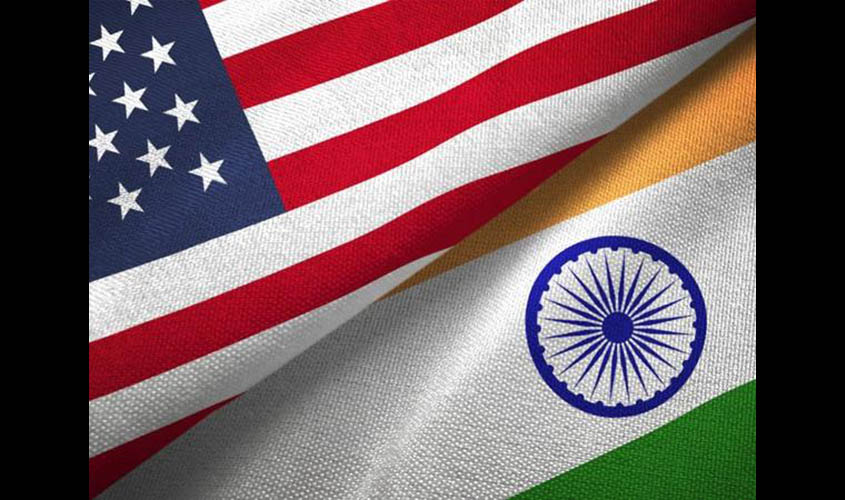Since the US, indeed the entire West, wants to fight jihad, and so does India, we should be an American ally—at least in its war on terror.
For quite some time, the Indian media has focused on Prime Minister Narendra Modi’s meeting with US President Donald Trump. Before that, it was the ranting, canting Pakistan Prime Minister Imran Khan and his meeting with Trump that kept journalists busy in this part of the world. In between, an extremely important statement made by the US President didn’t attract as much attention as it should: his opinion that India should fight the Taliban in Afghanistan.
“Look, India is right there [in the vicinity of Afghanistan]. They are not fighting it. We are fighting it. Pakistan is right next door. They are fighting it very little. Very, very little. It’s not fair. The United States is 7,000 miles away,” Trump said. He is absolutely right: the Americans are forced to do something that the nations in the region should have been doing on their own. More importantly, from our perspective, by not deploying our troops in Afghanistan, we are ensuring that we would never have a say in the affairs of the land-locked, trouble-torn nation—the affairs that have a direct bearing on the Kashmir situation and India’s national security.
By the way, it’s not the first time that Trump has grumbled about inaction on New Delhi’s part. In January this year, he had ridiculed India for just being involved in Afghanistan’s reconstruction. He complained that Modi was “constantly telling me he built a library in Afghanistan”. He added, “I don’t know who is using it in Afghanistan.”
He was spot on—on many counts. First, reconstruction is meaningless unless peace is secured, which the entire world, including India, believes that the Americans should do. Why? Taliban are thousands of miles away from the US; they don’t threaten the Americans, so why should they be bothered? Nobody has a clear answer. Everybody wants the Americans to do the dirty job of killing the most ferocious terrorists; and when they do that, the Americans are also lambasted and lampooned as having become the thanedars of the world!
Second, what’s the point of building libraries—and schools, roads, dams, even the parliament building—if eventually the Taliban take over the country, burn books, turn schools into madrasas (and produce more fundamentalists), blow up roads and dams, and use parliament to enforce the barbaric Wahhabi laws? First things first: peace and stability much precede reconstruction and development.
Third, India’s position in and on Afghanistan is ludicrous: we are spending so much in terms of men, money, and material, but when it comes to determining the fate of the nation, we have no say. The parties involved in the negotiations for the future of Afghanistan are the US, Pakistan (which actually is the root cause of all trouble), Qatar, Russia, even China, but not India. We can have a say only if we are willing to fight in Afghanistan.
Since the US, indeed the entire West, wants to fight jihad, and so does India, we should be an American ally—at least in its war on terror. Washington has been urging India to be one; we have been refusing to do that. Only an India-US alliance will convince the Americans to force the Pakistanis to behave themselves; without solid cooperation from us, the Americans would just keep uttering platitudes and clichés.
Our policymakers ought to realise that an alliance with America is in our national interest. This will check Pakistan’s evil designs; if Indian soldiers are stationed in Afghanistan, Pakistan’s worst nightmare will come true: it will be sandwiched between two hostile sides—Indian troops on its eastern border and Indian troops on its western border.
In this context, it is worth remembering the decision of Sardinian King Victor Emmanuel to ally with France and England in the Crimean War (1853-56), though that war involved no Sardinian or Italian interests. Count Cavour, though initially reluctant, fully supported the King. Cavour said, “Out of this mud of Crimea, a new Italy will be made.” It indeed was made, a unified Italy, for being on the winning side ensured benign neutrality of big powers to the unification efforts.
In international affairs, even today it is often the longest distance between
It can be argued that by getting involved militarily in Afghanistan, India would suffer casualties, so why should we fight somebody else’s war? The short answer is: it is our war as well. The events in Afghanistan and Kashmir are linked by the thread of jihad; we help others suppress Islamic terror in Kabul, the salutary effects will be felt in the Kashmir valley. Make no mistake, what we have in Kashmir is not separatism, but a jihadist movement; and since it is umbilically linked with global jihad, the war against it has to be international in scope and endeavour.
We must recognise a simple truth: we may be able to destroy Pakistan—the costs may be too high, though, as it’s nuclear—but we can’t make it behave itself. Americans can do that. And they are transactional; they’ll do that only if we do something for them.
They want us to help them in the war in Afghanistan, which they are fighting since 2001. It needs to be mentioned here that casualties in this war have not been as big as in Kashmir. The biggest American ally, the UK, has lost 456 lives in the war, whereas in Kashmir the losses have been far higher. According to the website of the Ministry of External Affairs, “since 1990, the main theater of Pak-sponsored activity in India has been the state of Jammu and Kashmir, which has seen the loss of about 27,000 lives in the last 11 years”.
In other words, had India been an American ally, it would have cut its losses enormously. We can still do that. We just have to discard the Nehruvian dogmas.
Ravi Shanker Kapoor is Editor, www.thehinduchronicle.com

